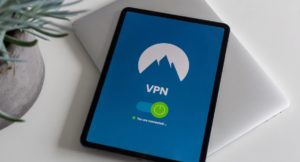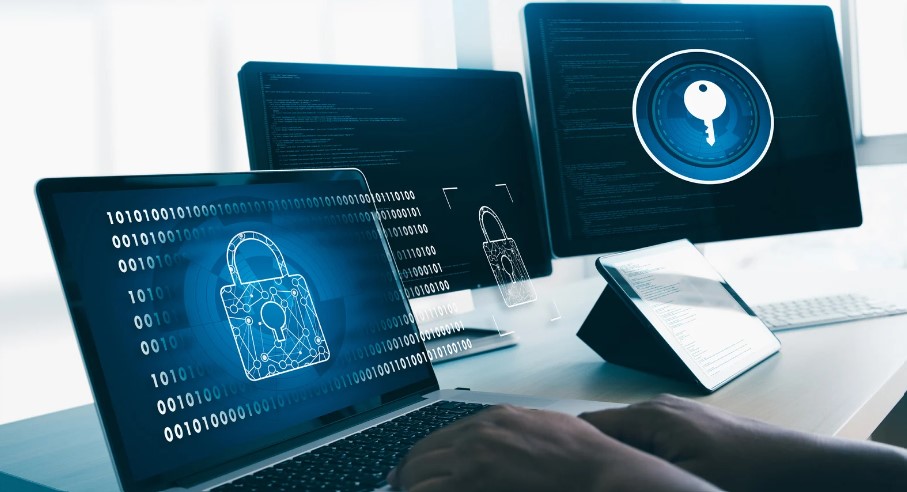Any employee working in an office for a company with more than a handful of staff probably never thinks about online security. The person or department in charge of information technology (IT) will take care of all that. But complacency can creep in when former employees leave to become freelancers, or indeed if employees are working from home (WFH).
WFHers are often supplied with a company laptop that is designed to connect to their office intranet or systems, but if that person goes out for a sneaky coffee to a shopping centre or decides to take a long weekend at a hotel somewhere, they could well be logging on to the internet for work from an insecure Wi-Fi connection.
In essence, irrespective of the size of any business, any freelancer, sole trader, employee or subcontractor needs to be made aware of the increasing need for online security, especially when handling others’ data that may be commercially confidential.
Tips to Keep Up With Cybersecurity for Remote Workers and SMEs
Using a VPN as a Matter of Course
Virtual Private Networks (VPNs) can safeguard cyber security because they access the target website service from an encrypted ‘middleman’ server rather than the device being connected to the internet service provider (ISP) then directly to the requested service.

So if a VPN user connects to, say, Facebook, the VPN server provides an extra layer of security, as it has advanced malware protection that will disconnect the device if it detects Spyware, Malware or phishing links.
Many people such as gamers, avid TV show streamers and holidaymakers use virtual private networks (VPNs) to access websites from different locations when geographical restrictions are in force.
One example of this might be a couple holidaying in Spain, wanting to watch EastEnders on the BBC iPlayer platform, then finding that their Spanish Wi-Fi’s hotel IP address causes the iPlayer to block the connection.
But by using a VPN extension on their laptop browser, they can simply choose a UK IP address from the VPN menu and within minutes they’re virtually back in Albert Square, keeping up with the tedious depressing lives of the protagonists of that popular BBC soap. Pity they’ve nothing better to do on their holiday – but there you go.
However, VPNs have a much more important advantage for business use because the intermediary encrypted server that the VPN uses to cloak the location of its user also anonymizes their identity. In effect, if using a VPN, the analytics software on any target website can’t know the identity of the logged-on user, where they are nor what device they’re using.
This can both save money for small business owners and safeguard important data from hackers. Let’s briefly examine a couple of the advantages of VPNs to small business users and WFHers.
Avoiding Dynamic Pricing
The practice of dynamic pricing (DP) is becoming ever more commonplace, and many people are now starting to be wary of it. However, the lengths to which some online shopping portals will go to extract the maximum spend from their customer base is remarkably complex.
Dynamic pricing is nothing new. Before even the days of the internet, a hotel might advertise its room rates in a local newspaper or on a sign-board outside the premises at a given amount per night.
Due to supply and demand, the price for a room would likely increase on a weekend and decrease off-season when there were probably more hotel rooms than people in a given town to fill them. That’s basic supply / demand dynamic pricing and has been accepted since the concept of trading began.
However, since the advent of the internet, online accommodation and ticketing portals have made this DP practice more pernicious and morally questionable. Let’s look at an example:
Imagine a person living in Scotland whose mother lives back in Devon at the original family home. Mother is suddenly taken very ill and the hospital phones her daughter in Scotland – urging her to get to Exeter as quickly as possible as Mum’s life is hanging by a thread.
The daughter phones her work, tells the boss she needs a couple of days’ compassionate leave and posts on Facebook that her mum is ill and can anyone look after her cat in Edinburgh for a few days.
AI Scanning Your Socials

This might sound farfetched, but large ticketing and accommodation reseller portals regularly scan people’s social media postings to see where they’ve planned holidays, where they’ve been and to understand their general shopping preferences. If the person’s privacy settings are public, all bets are off!
Consequently, if the artificial intelligence (AI) on a flight booking portal sees that a person’s Mum is critically ill, and that person needs to get from Edinburgh to Exeter in a hurry – the price of the flight displayed could easily double because the DP algorithms know that the customer is desperate to travel.
Not only do DP algorithms check such personal matters, but they also examine where the person is located by their IP address, check their purchase history and examine the device they’re using during the connected session. If you want to book a flight from, perhaps, London to New York, and your IP address shows you as being in the West End of the capital using a brand-new MacBook Pro, the AI pings ‘rich person alert!’ and prices go up like a hot air balloon on a chilly winter’s morning.
But using a VPN ensures that your IP address is cloaked, as is your identity and the device you’re using. Suddenly, the Edinburgh woman needing to go visit her Mum finds the price has decreased to the ‘regular’ fare at the click of a mouse.
Security at Unsecured Wi-Fi Hotspots
Further above we briefly mentioned the flexibility of WFH employees and freelancers logging on to their online accounts to perform work-related tasks from, say, a hotel or shopping centre café. Maybe they need to send a quick email to a client or finish a spreadsheet for a deadline they’d missed.
In that case, imagine the scenario where a freelance accountant working for an international corporation visits a coffee shop in their local Westfields mall. They sit down, get a flat white, open their laptop and immediately the Cleo’s Coffee Wi-Fi signal appears on the Wi-Fi connection dialogue.
Looking at the chalkboard above the counter, the person sees the password for customers as C0ff335h0p1 – that makes sense. They give their personal email address to log on and immediately receive a link to a discount voucher for their next visit.

But what actually happened is that a hacker sitting in a corner with a 4G router has set up a spoof Wi-Fi hotspot with the same name and password as the genuine establishment’s network. In that case, there’s a 50/50 chance that an unwary punter will log on to the hacker’s network. The link for the discount voucher is actually a method of installing malware onto the victim’s laptop. All seems well, but a couple of days later, the accountant’s client’s security is breached after hackers found a system password on the accountant’s laptop.
The freelancer now faces not only losing a valuable client, but a potential lawsuit for allowing the security breach to happen. That’s really going to ruin their day, along with the trustworthiness and reputation of the client concerned.
Had the accountant been using a VPN in the background, that coffee shop connection would have been cut by the VPN’s server before any harm could be done. And all for free – if the person had just used sensible foresight.
In Summary
Anyone who works with client’s data or indeed uses their mobile devices for work or domestic online shopping could seriously improve their chances of not being hacked or ripped off by internet baddies or DP algorithms by using a VPN.
On top of that, Netflix and iPlayer fans can still access their favourite shows from abroad, so the advantages are many. With most VPN clients being free for their basic facilities, there’s really no reason not to use one, for work, leisure or anything in-between.
Author Profile

- Blogger by Passion | Contributor to many Business Blogs in the United Kingdom | Fascinated to Write Blogs in Business & Startup Niches |
Latest entries
 FinanceFebruary 7, 2026The Main Types of Online Fundraising Used by Charities
FinanceFebruary 7, 2026The Main Types of Online Fundraising Used by Charities BusinessJanuary 9, 20266 Fastest Cash House Buyers in the UK 2026
BusinessJanuary 9, 20266 Fastest Cash House Buyers in the UK 2026 BusinessDecember 12, 2025The Smart SME’s Guide to Future-Proofing Physical Assets
BusinessDecember 12, 2025The Smart SME’s Guide to Future-Proofing Physical Assets FinanceOctober 28, 2025How to Measure the ROI of Your Promotional Product Campaigns?
FinanceOctober 28, 2025How to Measure the ROI of Your Promotional Product Campaigns?





